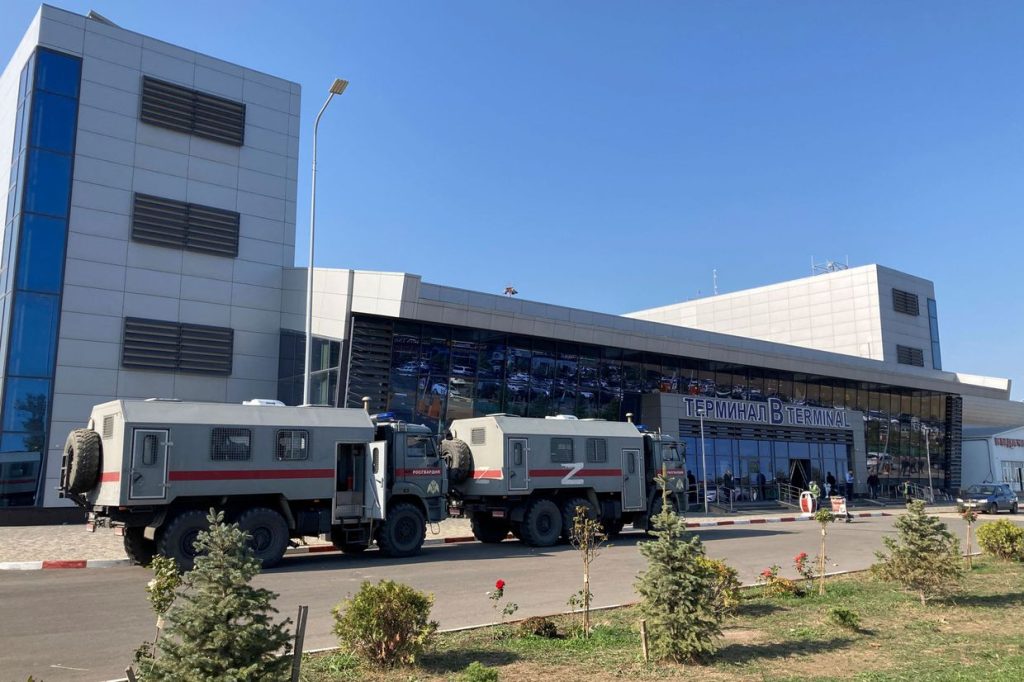In response to a recent terrorist attack in Makhachkala and Derbent, Sergei Melikov, the head of Dagestan Republic, announced the dismissal of Magomed Omarov, the head of the Sergokalinsky district, after his sons were suspected of involvement. Melikov made it clear that if Omarov’s role in the attacks is confirmed, he will face full responsibility. Omarov’s sons, Osman and Adil, along with his nephew Abdusamad Amadziev, were reportedly involved in attacks on religious sites and a police post, resulting in the deaths of 20 individuals, including 15 police officers. Omarov denied having any recent contact with his sons and stated that he will cooperate with the investigation. Another nephew of Omarov, Ali Zakarigaev, was killed in a counter-terrorism operation following the attacks. Dagestan, a multi-ethnic, majority-Muslim republic in Russia’s North Caucasus region, has experienced terrorism and insurgency in the past, including spillover from the wars in Chechnya.
As the investigation unfolds in Dagestan, it is evident that the region has faced challenges with extremism in the past. The violent but low-intensity insurgency against the government and repeated acts of terrorism in the early 2000s have left scars on the region. The recent attacks in Makhachkala and Derbent have once again highlighted the security concerns in Dagestan and the complex dynamics at play in the North Caucasus region. With a mix of ethnicities and religious affiliations, Dagestan remains a diverse and culturally rich area, but also a hotspot for potential conflict and violence. The involvement of Magomed Omarov’s family members in the terrorist attacks further complicates the situation and raises questions about the extent of radicalization in the region.
In a separate development, a Kyrgyz man was sentenced to five years in prison for fighting on behalf of Russia in Ukraine. Under Kyrgyz law, participating in conflicts on foreign territory is prohibited, leading to the legal repercussions faced by the individual involved. This case sheds light on the complexities of the conflict in Ukraine and the involvement of foreign fighters in the region. It also underscores the global reach of conflicts and the legal consequences that individuals may face for engaging in warfare outside their own country. As geopolitical tensions persist in various parts of the world, the issue of foreign fighters and their impact on conflicts continues to be a significant concern for international security.
The dismissal of Magomed Omarov and the sentencing of the Kyrgyz man for involvement in conflicts abroad serve as reminders of the ongoing challenges related to extremism and terrorism. These cases highlight the need for strong governance, effective counter-terrorism measures, and international cooperation to address the root causes of radicalization and prevent further acts of violence. In regions like Dagestan, where historical conflicts and ethnic tensions have contributed to instability, it is crucial to address social, political, and economic grievances to create a more stable and peaceful environment. By supporting independent journalism and staying informed about developments in these regions, individuals can contribute to raising awareness and promoting dialogue to foster greater understanding and cooperation in conflict-affected areas.
As the situation in Dagestan and other conflict zones continues to evolve, it is imperative for governments, civil society organizations, and the international community to work together to address the underlying drivers of extremism and violence. Promoting inclusive governance, protecting human rights, and investing in community-based initiatives are essential steps towards building resilience and preventing radicalization. By supporting independent journalism and advocating for transparency and accountability, individuals can play a role in promoting peace and stability in regions affected by conflict. The dismissal of officials involved in terrorism-related activities and the prosecution of individuals engaged in foreign conflicts are important steps towards upholding the rule of law and promoting security for all citizens.


